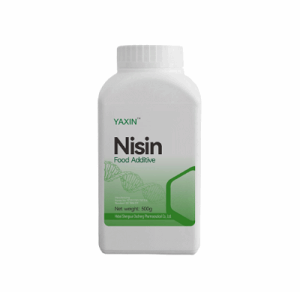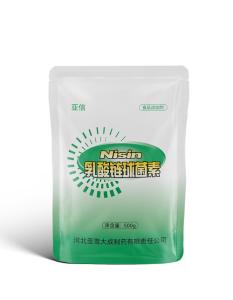

|
- Createtime: 2023-02-24
- Updatetime: 2024-10-16
Nisin, as a natural, efficient, and safe food preservative, has several primary applications.
1. Food Preservation and Freshness
·Dairy Products: Nisin is most widely used in dairy products. It effectively inhibits harmful microorganisms in dairy, such as Staphylococcus aureus and Streptococcus pyogenes, thus extending the shelf life of dairy products. Additionally, it helps maintain the taste and flavor of dairy items, enhancing product quality.
·Meat Products: In meat products, nisin can inhibit the growth of harmful microorganisms like Clostridium botulinum, preventing spoilage. It also improves the color and texture of meat products, increasing consumer purchase intent.
·Canned Products: Nisin plays a significant role in preserving canned goods. It prevents microbial contamination during storage, maintaining the quality and flavor of the products.
·Other Foods: Besides dairy, meat, and canned products, nisin can be applied in various other foods, including juices, beverages, and condiments, serving as a preservative.
2. Biomedical Field
·Antibacterial Treatment: Nisin exhibits strong inhibitory effects against various Gram-positive bacteria, making it potentially useful in antibacterial treatment. It can serve as an adjunctive therapeutic agent, working synergistically with conventional treatments to enhance effectiveness.
·Immune Regulation: Nisin also has immunomodulatory effects, capable of activating adaptive immune responses and enhancing the body's immunity, which is crucial for preventing and treating infectious diseases.
·Cancer Treatment: Increasing evidence suggests that nisin can influence tumor growth and show selective cytotoxicity against cancer cells, indicating its potential in cancer treatment.
3. Other Uses
Nisin can also be used for preservation in the feed and cosmetics industries. In animal feed, it prevents microbial contamination, improving feed quality and safety. In cosmetics, nisin acts as a preservative, extending shelf life and ensuring product stability and safety.
Nisin's diverse applications—including food preservation, biomedical uses, and preservation in other industries—demonstrate its broad potential and market demand in both food and pharmaceutical sectors.
-
2023-03-13
How is Nisin produced?
Nisin is a naturally occurring antimicrobial peptide that is produced by certain strains of bacteria, particularly Lactococcus lactis. The process of nisin production involves the ...
MORE -
2023-03-14
How is ε-Polylysine hydrochloride produced?
ε-Polylysine hydrochloride, also known as ε-PL or Poly(ε-lysine), is a natural biopolymer composed of ε-lysine monomers. ε-PL is known for its antimicrobial properties and has...
MORE
- Tel:+8618231198596
- Whatsapp:18231198596
- Chat With Skype







